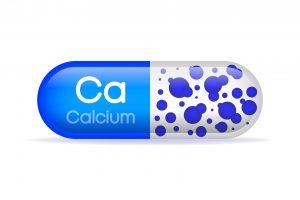
The body permanently needs many nutrients that are available in various mineral products, and magnesium is one of the necessary minerals in the human body, and it is the fourth abundant mineral in the body. The importance of magnesium for the body, symptoms of magnesium deficiency in the body and what are the recommended daily doses of magnesium.
Magnesium importance for the body
1- Important for bone health, because it helps to control the levels of calcium and vitamin D in the body, which are necessary for bone health
and configured properly.
2- Important for cardiovascular health, magnesium deficiency is linked to cardiovascular disease.
3- It is important to control blood pressure, as it limits high pressure.
4- Reduces the risk of diabetes, eating high-magnesium meals is linked to a lower risk of developing diabetes
diabetes
5- It reduces the pain of migraine headaches, as it prevents the symptoms associated with migraines.
6- Reduces anxiety, tension and mood disorders.
7- It improves premenstrual symptoms, including abdominal pain, water retention and general fatigue.
Magnesium deficiency Symptoms of in the body
If you suffer from magnesium deficiency, and you take a blood test, the deficiency will not appear in the test because 99% of the magnesium is inside the cells and not outside in the blood, so if the level of magnesium in the test appears normal, this does not necessarily mean that you do not suffer from magnesium deficiency, but You can realize the deficiency of magnesium in the body through some of the symptoms.
Here are some symptoms that may appear on the body:
1- Bone diseases, such as low bone density that can develop into brittle bones or permanent spasms.
2- Loss of energy needed for the functioning of the muscles and nervous system.
3- Calcification of blood vessels, due to not eating enough foods rich in magnesium and also not diversifying them.

Magnesium types
1- Magnesium citrate, it is very common as it is good and easy to absorb and useful in cases of nocturnal leg cramps, constipation and headaches.
2- Magnesium glycinate, which is an amino acid of glycine, and it combines magnesium and glycine, any mineral linked to protein, and it is also easy to absorb, and it has sedative agents, anti-anxiety and stress, and helps sleep, as well as magnesium.
3- Magnesium Triionate, which is the best for brain health, but it is very expensive.
4- Magnesium Ortate, useful for professional athletes because it enhances the body’s energy and is also expensive.
Magnesium natural sources
1- Pumpkin seeds, which are rich in magnesium.
2- Spinach and chard.
3- Almonds and avocado.
4- All green or leafy vegetables in general.
5- Dark chocolate without sugar.
Magnesium daily doses
Some minerals cross the body quickly and some remain for a longer period, such as sodium, iron and calcium, which often remain stored in the body, while the body does not retain magnesium, potassium and zinc for long.
The recommended amount for women is 310 to 360 milligrams per day.
The recommended amount for men is 400 to 420 milligrams per day.
It is better to increase these percentages to ensure that the body gets the necessary amount for its health.

How to get magnesium?
You can get magnesium products through Vitazone, and you can also get many other minerals that the body needs as well as nutritional supplements and vitamins through Vitazone at the best price and 100% original products. Shop now.




